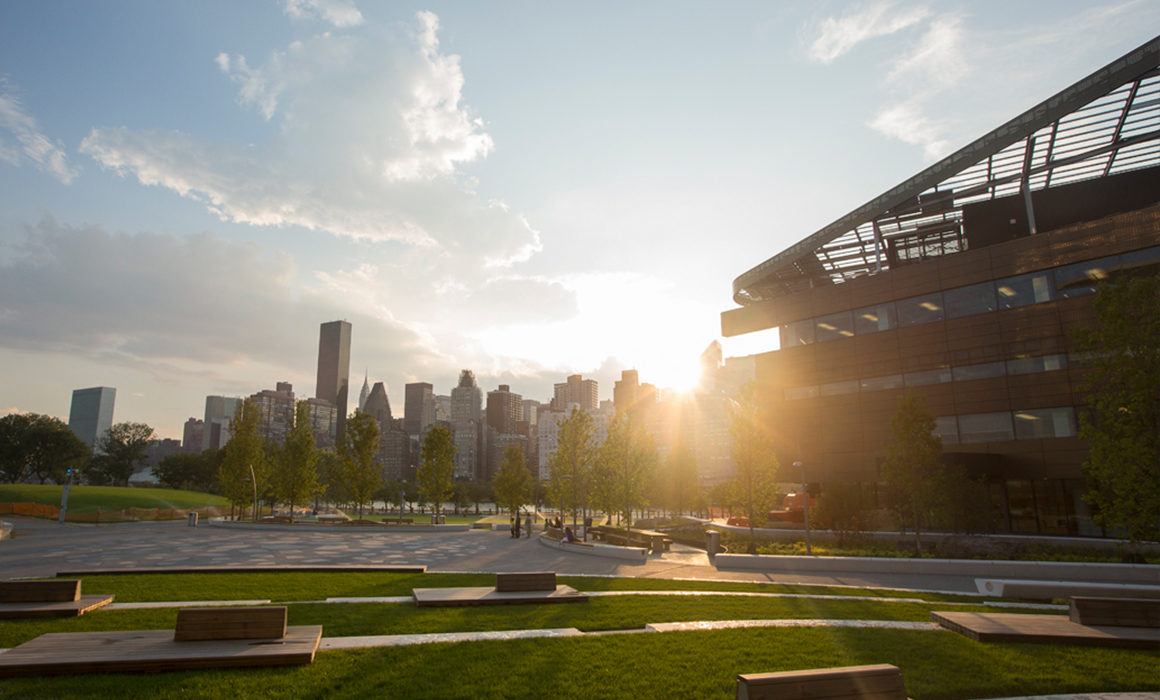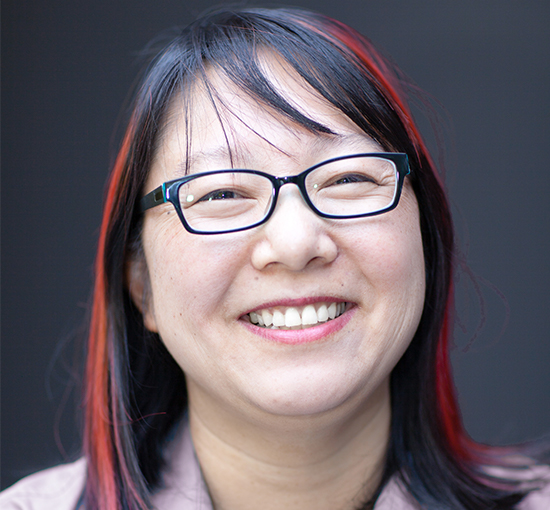Most were wowed by the city that never sleeps. Others stressed over the urban bustle. Whatever their impressions were of the Big Apple, the bigger takeaway for Technion students who spent the summer interning at the Joan and Irwin Jacobs Technion–Cornell Institute at Cornell Tech was admiration for the high-level digital-age research, and a feeling of continuity between the two campuses.
“I’m very proud that there’s a new campus of the Technion in New York,” said Inbar Fourier, a Jacobs intern and Technion student from the Faculty of Industrial Engineering and Management. “I think it’s very important for both communities of students to meet and exchange ideas and information. It certainly enriches the cultural and social relationships between the two campuses, in addition to the professional aspects.”
Gillie Gefen, a 2019 graduate who also majored in industrial engineering and management, added, “I can’t stop talking and telling others about my experience. I feel that this connection that develops between people from different backgrounds on common professional grounds can create amazing things. The experience was very meaningful for me.”
The NYC Summer Research Program at the Jacobs Institute on Roosevelt Island was launched in 2017 to provide select Technion students the opportunity to live in New York City while doing hands-on research in a multidisciplinary setting. It’s a win-win for all, as the Jacobs faculty often need short-term interns to assist in their research, and the students get a rich academic and cultural experience. Over the long term, the program is expected to foster research collaborations and cement the partnership between the Technion in Haifa and the Jacobs Technion–Cornell Institute in NYC.
The fledgling program is already growing. Its inaugural cohort took in just four students, while nine were admitted in 2018. This past summer’s eight-week program was the largest yet, with 11 Technion undergraduates and one master’s student. For the first time, the program incorporated social activities to help the students get acquainted with the city, such as a boat tour and an all-American BBQ.
The interns worked with faculty at Jacobs, Cornell Tech, and the Runway Startup Postdoc Program, which guides recent Ph.D.s in digital technology fields as they transition from an academic mindset to an entrepreneurial one.
“When I walked into [Assistant Professor] Wendy Ju’s lab, I felt the sky’s the limit,” said Gefen. “If you have an idea and motivation, then you have the opportunity to try it. It doesn’t matter if you know what to do every step of the way. What’s important is that it probably can be done, and you have the people, the knowledge, and the machines to help do it.” Gefen worked with Assistant Professor Ju on her ongoing research related to human-robot interaction, particularly as applied to autonomous cars.
Bahjat Kawar, a Technion computer science undergraduate, assisted Cornell Tech Associate Professor Thomas Ristenpart with a cybersecurity project to guess a user’s password based on another password for the same user. “Sometimes passwords on websites with mediocre security get leaked,” said Kawar. “There is a correlation between our passwords on those sites and on others such as Facebook and even bank accounts. I learned a lot, and the project was very interesting.”
Kawar has been toying with the idea of pursuing a master’s degree, and the internship helped clarify his decision. “I got a good peek into the world of research, and my impression is very positive.”
Cornell Tech and the Jacobs Institute were the result of a competition to build an applied sciences campus in NYC that would stimulate the economy, promote entrepreneurship, and build the tech sector. Since the joint venture between the Technion–Israel Institute of Technology and Cornell University opened its doors in 2012, some 28 companies have been incorporated, 21 patent applications have been assigned to the Jacobs Institute, and five patents were granted.
The Jacobs Institute is part of the Technion’s strategic plan to expand globally and forge collaborations worldwide. In 2017, the Technion inaugurated the Guangdong Technion Israel Institute of Technology in China. The university also has joint research projects with MIT, the University of Michigan, Yale University, Johns Hopkins University, and other universities in the U.S. and abroad. And while the NYC Summer Program brings Technion students to the Jacobs Institute, the iTrek program brings Jacobs students to Haifa to learn about Israel’s startup ecosystem. Exchange programs like these bring together people with different perspectives, which is increasingly relevant in solving today’s complex global problems.
“It was nice to feel like you’re still connected to the Technion,” said Kawar of his experience at the Jacobs Institute. “Although we were in the U.S., there was a considerable Technion presence, which always reminded us that this campus is, in some sense, part of the Technion.”

